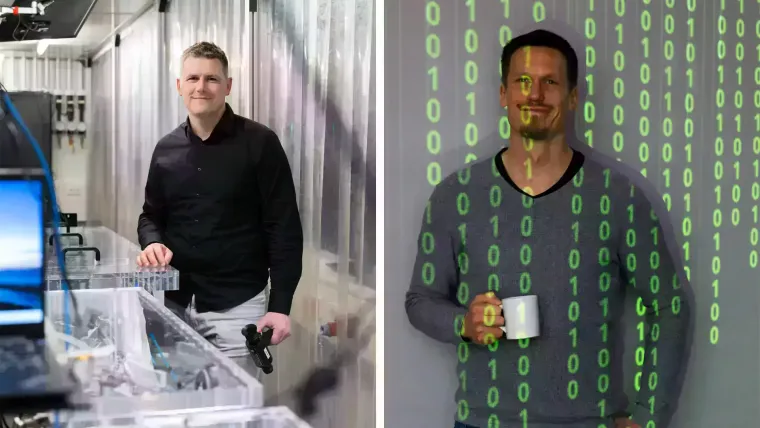
- Light
Published: | By: Daniel Siegesmund (Leibniz-IPHT), adapted by Luca Hager and Christian Helgert
Source article
The European Research Council (ERC) is funding two projects at the Leibniz Institute for Photonic Technology (Leibniz-IPHT). The two prestigious ERC Consolidator Grants each have a funding volume of about two million euros. The funds are designated for research into optical health technologies: in addition to novel light sources for spectroscopic diagnostics, artificial intelligence (AI)-based methods for evaluating diagnostic data will also be researched and developed.
Spectroscopy-based methods, such as infrared (IR) and Raman spectroscopy, are suitable for analyzing the molecular properties of biological samples and have the potential to revolutionize diagnostics. The performance of these approaches has already been demonstrated on an experimental level. In clinical practice, however, the methods have so far played only a minor role. The major goal of the ERC project LIVE (Laser-Based Infrared Vibrational Electric-Field Fingerprinting), led by PD Dr. Ioachim Pupeza, is to research and develop novel light sources as well as innovative IR technologies and instruments and to open up application potentials for the diagnostic analysis of biomedical samples. The process is expected to significantly increase both the throughput rate of procedures and shorten the time required for a single analysis, which is an important factor for the clinical setting. Pupeza and his team will collaborate with the University Hospital of Jena, the University of Vienna and the Friedrich Schiller University of Jena on the project.
Revolutionary tools for digital pathology and tissue diagnostics
In order to distinguish between healthy and diseased tissue in tumor diagnostics, conventional methods involve staining tissue samples and then having them examined by pathologists. These steps are labor-intensive and require a great amount of time and money. Researchers in the ERC-funded STAIN-IT project want to develop a faster and gentler procedure. In the transdisciplinary project, ACP principal scientist PD Dr. Thomas Bocklitz, head of the research department "Photonic Data Science" at the Leibniz IPHT, and his team are researching and developing a digital staining method. "Our goal in the STAIN-IT project is to use multimodal imaging techniques in a non-invasive way. To do this, image data is analyzed using artificial intelligence to mimic immunohistochemical staining," Bocklitz said. In the project, Leibniz-IPHT researchers are collaborating with colleagues from the university hospitals in Jena, Erlangen and Bayreuth.
ACP codirector Prof. Jürgen Popp is delighted about the ERC funding: "I congratulate Ioachim Pupeza and Thomas Bocklitz on this recognition of their research work. The fact that two of our staff members were successful with their project proposals at the ERC is proof of the scientific excellence of the Leibniz IPHT." The European Research Council is funding both research projects with approximately two million euros each for a project duration of 5 years.
About ERC funding
The European Research Council (ERC) was initiated by the European Union in 2007 and has established itself as a globally visible, European funding program for cutting-edge research. 321 researchers have received Consolidator Grants from the European Research Council in 2022. The grants, totaling 657 million euros, are part of the EU's Horizon Europe program. They are intended to support excellent scientists who have seven to twelve years of experience following their doctorate to pursue their most promising ideas.
07745 Jena Google Maps site planExternal link